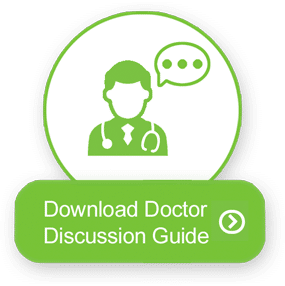It’s a different kind of Christmas
In a different kind of world
Even though it looks the same
Everything has changed
It’s a different kind of Christmas “
– “A different kind of Christmas” by LeAnn Rimes
The empty chair at the holiday table can serve as a poignant reminder of a loved one’s loss.
For those who are grieving the loss of a loved one, this time of year can be filled with complex emotions and challenges. The absence of a cherished family member or friend can cast a shadow over the festivities.
“The reality is that you will grieve forever,” Elisabeth Kübler-Ross and David Kessler wrote in their book On Grief and Grieving: Finding the Meaning of Grief Through the Five Stages of Loss. “You will not ‘get over’ the loss of a loved one; you will learn to live with it. You will heal and you will rebuild yourself around the loss you have suffered. You will be whole again but you will never be the same. Nor should you be the same, nor would you want to.”
People experiencing grief can have a number of emotions, including sadness, anger, loneliness, and guilt. During the holiday season, these emotions can become even more pronounced, making it challenging to participate in the festivities with the same enthusiasm.
“The only cure for grief is to grieve”
Managing the holidays while struggling with the loss of a loved one can feel insurmountable, but it is helpful to realize that grief means you deeply cared for and loved the person who died.
“Grief is not a disorder, a disease or a sign of weakness,” said Earl Grollman. “It is an emotional, physical and spiritual necessity, the price you pay for love. The only cure for grief is to grieve.”
By accepting that it is OK to grieve, you can acknowledge your emotions and engage in healthy coping strategies.
Navigating grief during the holidays
So, what are healthy coping strategies for navigating grief? Mental Health America shares the following list of ways to help cope with your grief:
- “Seek out caring people. Find relatives and friends who can understand your feelings of loss. Join support groups with others who are experiencing similar losses.
- Express your feelings. Tell others how you are feeling; it will help you to work through the grieving process.
- Take care of your health. Maintain regular contact with your family physician and be sure to eat well and get plenty of rest. Be aware of the danger of developing a dependence on medication or alcohol to deal with your grief.
- Accept that life is for the living. It takes effort to begin to live again in the present and not dwell on the past.
- Postpone major life changes. Try to hold off on making any major changes, such as moving, remarrying, changing jobs or having another child. You should give yourself time to adjust to your loss.
- Be patient. It can take months or even years to absorb a major loss and accept your changed life.
- Seek outside help when necessary. If your grief seems like it is too much to bear, seek professional assistance to help work through your grief. It’s a sign of strength, not weakness, to seek help.”
 Another way to find solace during the holidays as you are navigating grief is to honor the rituals and memories shared with the departed loved one. Light a candle in their memory, set a place at the table for them, or have a moment of silence. To create moments of memory, the What’s Your Grief blog post suggests creating a “secret signal.”
Another way to find solace during the holidays as you are navigating grief is to honor the rituals and memories shared with the departed loved one. Light a candle in their memory, set a place at the table for them, or have a moment of silence. To create moments of memory, the What’s Your Grief blog post suggests creating a “secret signal.”
“Create a secret signal for your family members to give one another when something reminds them of the person who has died,” according to the post. “This could be a signal used at any moment, happy or sad, throughout the year.”
As you gather with family and friends, navigating grief may mean sharing stories and reminiscing about your loved one. These conversations can be both cathartic and comforting.
“Why not start a tradition of telling special holiday stories on the holiday? Instead of reading the kids ‘Twas the Night Before Christmas when you tuck them into bed, start the tradition of telling them a story from a holiday when their loved one was alive,” according to the blog post.
Helping a loved one navigate grief
If you aren’t the one who lost a loved one, but are going to be at holiday gathering with someone else who has lost someone, you can look to lend an empathetic ear and presence.
Mental Health America shares:
- “Share the sorrow. Allow them — even encourage them — to talk about their feelings of loss and share memories of the deceased.

- Don’t offer false comfort. It doesn’t help the grieving person when you say ‘it was for the best’ or ‘you’ll get over it in time.’ Instead, offer a simple expression of sorrow and take time to listen.
- Offer practical help. Baby-sitting, cooking and running errands are all ways to help someone who is in the midst of grieving.
- Be patient. Remember that it can take a long time to recover from a major loss. Make yourself available to talk.
- Encourage professional help when necessary. Don’t hesitate to recommend professional help when you feel someone is experiencing too much pain to cope alone.”
During this challenging time, the support and compassion of friends and family can make a significant difference. Yet, many people are afraid that they are going to say or do the wrong thing.
“Empathy has no script. There is no right way or wrong way to do it,” according to Brené Brown, as quoted in Hello! Magazine. “It’s simply listening, holding space, withholding judgment, emotionally connecting and communicating that incredibly healing message of ‘You’re not alone.’”
Offering a shoulder to lean on and a listening ear can mean the world to someone who is burdened with grief. You don’t have to offer platitudes – you can just sit quietly with them and tell them they aren’t alone.
How to know when you – or a loved one – needs professional help
Sometimes, navigating grief becomes more than we can handle. But how do you know when you’ve gotten to the point that you need professional guidance?
First, it’s important to know that seeking help is NOT a weakness – it’s a strength. Psychiatrists and grief counselors can offer valuable insights and coping strategies to help you manage your emotions and find healing. Their expertise can provide you with a safe space to express your grief and explore ways to cope effectively.
“You do not have to wait until grief has overtaken your life before you seek grief counseling,” according to a post on Well San Francisco.
The site suggests that if you can’t move on – or have moved on “too well” – you may need to talk with a professional to get the closure you need and move forward in life with a healthy mindset.
Further, it’s important to recognize that grief is not depression – but grief can trigger depression. Well San Francisco offers several ways that grief is different than depression:
- “In grief, your focus is on the loss. In depression, you focus on yourself.
- In depression, people feel guilty, worthless, and low self-esteem. In grief, you may have fleeting feelings of guilt but otherwise your self-esteem is intact.
- You have some fluctuating ability to feel pleasure, hope, and interest during grief. You do not in depression.
- During grief, people generally feel better when spending time with others they love. That’s not the case in depression.
- People in depression generally feel numb or limited range of emotions whereas people grieving experience an array of different emotions.
- If you have thoughts of death when grieving, they are because you miss the person you lost and want to be with them. In depression, you just want to be out of pain or don’t feel like you are worthy of living.”
The bottom line is that you should offer yourself and your loved ones grace this holiday season. It won’t feel like normal navigating grief and you will likely feel a mix of emotions – maybe even at the same time. Know that there is no right or wrong way to grieve, but that it is OK to grieve and remember your loved one.
If you or a loved one needs help navigating grief and are not sure where to turn, start by visiting your primary care physician.
 If you or a loved one are in crisis, please call the 988 Suicide & Crisis Lifeline. The 988 Lifeline provides “24/7, free and confidential support for people in distress, prevention and crisis resources for you or your loved ones, and best practices for professionals in the United States.”
If you or a loved one are in crisis, please call the 988 Suicide & Crisis Lifeline. The 988 Lifeline provides “24/7, free and confidential support for people in distress, prevention and crisis resources for you or your loved ones, and best practices for professionals in the United States.”
To read more on this topic, please visit:
Our articles are for informational purposes only and are reviewed by our Medical Information team, which includes PharmDs, MDs, and PhDs. Do not make any changes to your current medications or dosing without consulting your healthcare provider.
The GeneSight test must be ordered by and used only in consultation with a healthcare provider who can prescribe medications. As with all genetic tests, the GeneSight test results have limitations and do not constitute medical advice. The test results are designed to be just one part of a larger, complete patient assessment, which would include proper diagnosis and consideration of your medical history, other medications you may be taking, your family history, and other factors.
If you are a healthcare provider and interested in learning more about the GeneSight test, please contact us at 855.891.9415. If you are a patient, please talk with your doctor to see if the GeneSight test may be helpful.




